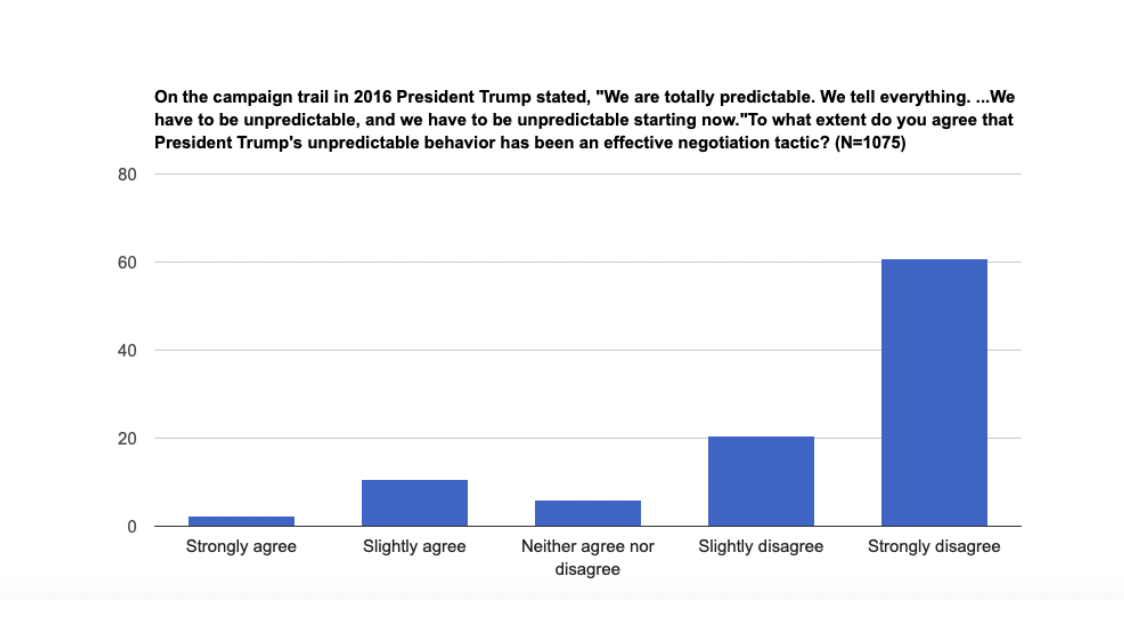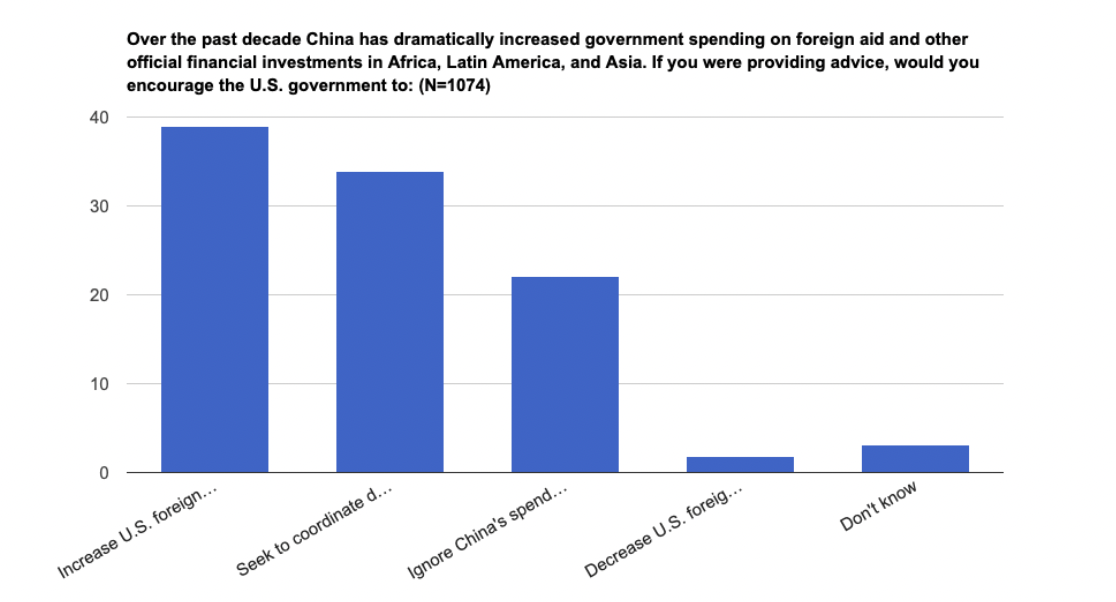Fun Times at the Global Research Institute
Peter Leonard
One of the best parts about working at the GRI is the opportunity to attend its thought-provoking and engaging events. I was fortunate to attend several events this semester, ranging from a research showcase to a hot chocolate bar for finals. All of the events added to my positive experience at the GRI.

GRI Open House – October 7
The GRI’s Open House was a pleasure to attend not just because there was great food and people abound, but the event served as a valuable time to inform members of the community about our research. The TRIP team talked to people from all parts of campus, including President Katherine Rowe. I also had the chance to learn what the other organizations at the GRI were up to. I was especially interested in Nuke Lab, which researches nuclear proliferation, and Ignite, which focus on public health.
GRI Homecoming – October 17-19
The GRI hosted a few different events for William and Mary’s homecoming, including a series of “Lightning Talks” and a BBQ at the GRI. It was neat to see TRIP alumni talk about their experiences on the team and how the projects have evolved over time. A lot of the work we are doing now is built on the foundation that the alumni laid-out.
Fall Semester Research Celebration – November 20

I had the unique opportunity to serve as the MC for the GRI’s Fall Semester Research Celebration, which invited two members from the GRI’s assorted projects to present on their research. The event was lightning fast – presenters had three minutes to summarize their findings or risk being cut short by a gong. Two of the TRIP RAs, Maggie Manson and Morgan Doll, did a masterful job at presenting TRIP’s work and stole the show (albeit I may be a bit biased!). Powerful presentations AND pizza from Mellow Mushroom? I am now counting the seconds until the Spring Semester Research Celebration!
Foreign Policy Journalism in the Trump Era: a Panel Discussion
Maggie Manson
On Thursday, November 7th the Teaching, Research, and International Policy Project kicked off our Foreign Affairs Journalist and Scholars Conference with a panel discussion titled “Foreign Policy Journalism in the Trump Era.” The panel featured CNN Analyst and Brookings Senior Fellow Susan Hennessey, Reporter for the Intercept Akela Lacy ‘15, Correspondent for the New York Times David Sanger, and Professor Mike Tierney as the panel’s moderator. Topics discussed ranged from the unprecedented lack of press briefings by the current administration to the impact of the Trump presidency on U.S. foreign affairs. Much of the discussion tied back to the broader concept of the media serving as a conduit to the public and policymakers and how we can better incorporate academic knowledge into media discourse.

The topic on the forefront of much of the audience’s mind was the ongoing impeachment inquiry into President Donald Trump. Panelists approached this topic by looking more broadly at how the Trump presidency has affected U.S. foreign relations with other countries. A common sentiment discussed among panelists was that after this administration, the next president will have to mend key diplomatic relationships that have been strained or broken by Trump. The U.S. will have to regain the trust of many of its historical allies and reevaluate its relationships with countries such as Russia, Saudi Arabia, and Turkey that have found themselves in good standing with the current administration despite leaning authoritarian and committing human rights abuses.
The panelists could not speculate on whether or not Trump would be impeached and removed from office, but they did speak to the scale of executive power being utilized and potentially abused by this president. “You need to not just give a fair rendering of the law, precedent and long-term institutional position, but you also need to step back and situate it in the larger and unprecedented moment that we’re seeing in terms of the big, strategic positions that this White House is taking on the question of executive power,” Susan Hennessey stated.
Another interesting topic discussed by panelists was the impact of leaks on transparency and security. In regards to the increased volume of leaked confidential documents from the U.S. government, Hennessey and Sanger presented two divergent, yet equally thought-provoking perspectives. Hennessey argued that these leaks present a threat not only to international security and government legitimacy, but also to the personal safety of U.S. government employees. According to Hennessey, these leaks deteriorate governmental structures and legitimacy by creating a separate, irregular channel for this information to pass through.
Sanger countered by stating that there is a trend towards over classification of information within the government and that such leaks actually foster transparency and hold the government accountable to its citizens. He also mentioned that at the New York Times, the process of releasing such information to the public includes active contact with relevant government agencies to ensure that the release of this information does not put any U.S. citizens or ongoing operations at risk.
The Foreign Policy Journalism in the Trump Era panel was not only interesting and informative for the audience, but also quite engaging of student questions and diverse perspectives. It was a great start to our Foreign Affairs Journalist and Scholars Conference and a productive weekend of discussion between media and academia. Thanks to Susan Hennessey, Akela Lacy, and David Sanger for speaking on this panel!

RA Perspective: Recommendations for Improving Media Uptake of Academic Knowledge
Lucas Arnett
Since I became a Research Assistant here at TRIP, I’ve been fascinated by the central question we’ve been trying to answer: how can we make academia more relevant to policy discourse? Like many undergraduate students, I’ve often found myself dragging my eyes along the fiftieth page of some journal article and struggling to remember whether this one particular old white guy identifies more with the agentic constructivist or offensive neorealist paradigmatic camp.
However, when I finally had the privilege of sitting in on a TRIP workshop full of talented journalists and academics, many of whom have trudged through those same articles, it made me realize that I’m certainly not the only one who thinks academia can work on being more relevant to policymakers. Over the course of three hours, I heard some well-respected journalists, academics, and publishers talk about some of the reasons why we don’t often see academia in the news:
On the “demand side”, (ie journalists, publishers, etc), we discovered many reporters are a little too focused on ‘getting the scoop’, recording that perfect soundbyte, or finding the quote that fits their pre-existing opinion instead of engaging with the nuance of what academics have to say. Considering many academic journals are gated by an expensive pay-wall or feature 60-page entries, it’s not surprising journalists turn to think tanks with pretty graphics or find alternative sources of expertise.
On the “supply side” (i.e. academia), conference attendees suggested that scholars should do better to understand that journalists don’t necessarily want 200 years of Namibian history for a story about the election. Academics should also know that even when a journalist talks to them for background, and doesn’t quote them, they are still helpful to the reporting process and need not be offended.

Reporting and research are both challenging jobs that require boatloads of effort on the agent’s behalf. However, the more we try to cut corners to make our lives easier, the more we introduce barriers to mutual understanding, and the more academia is confirmed to be an ivory tower that no one except graduate students and other academics actually read and understand. To make research more palatable and impactful, the first thing everyone should learn about is the process of knowledge production (or should I say, epistemology) on both the supply and demand sides. Stay tuned for a report next year with more details on all the recommendations and takeaways from the conference.







